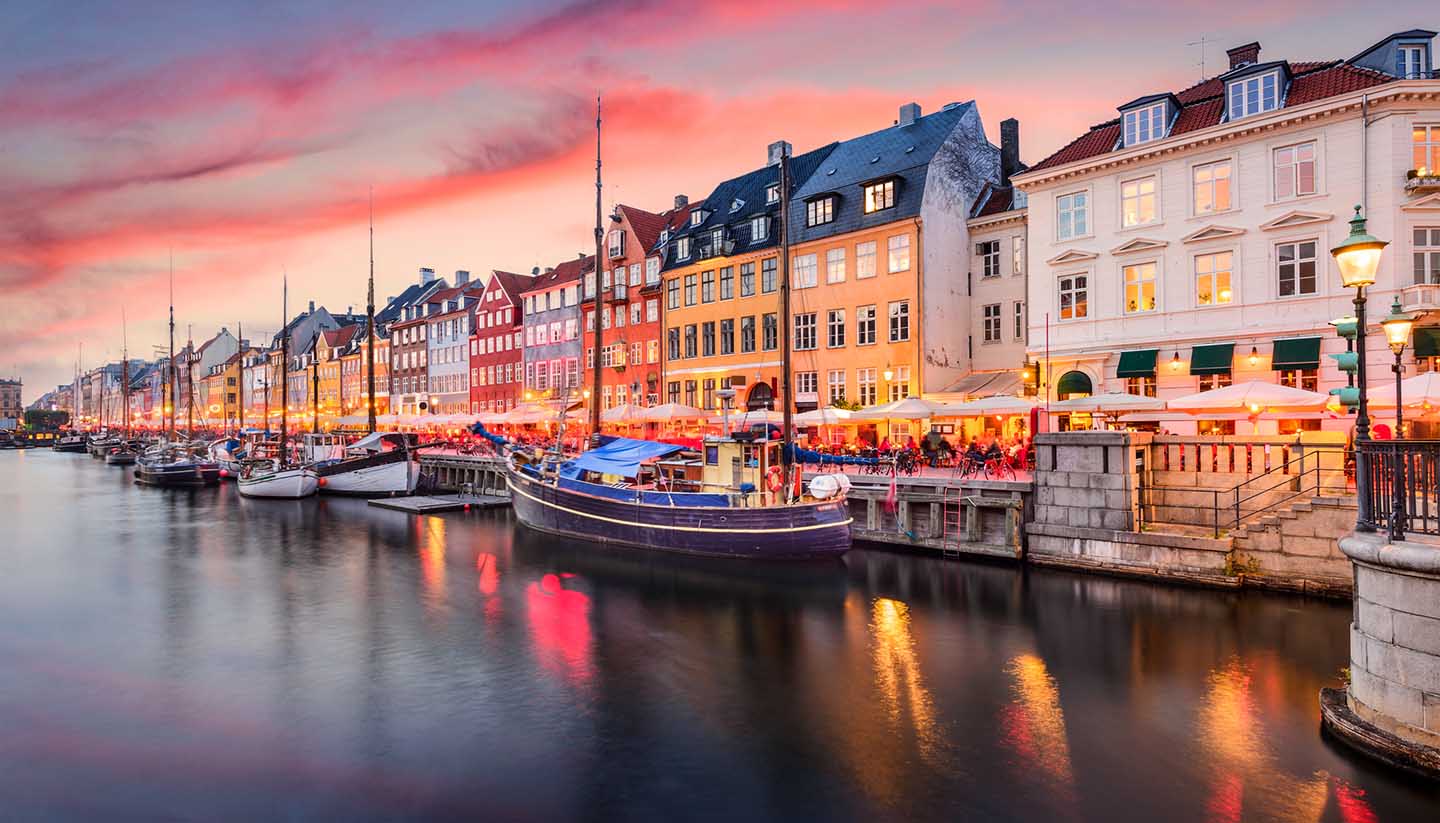Denmark History, Language and Culture
History of Denmark
Inhabited since before the Stone Age, the first tribal Danes arrived during the Iron Age and established trading links with the Roman Empire. From the 9th century, the Danes, or Vikings, were fiercely colonial seafaring explorers who raided, traded and upbraided lands from Iceland to Canada and by the early 1000s they had colonised lands in England, Ireland and France.
Having converted to Christianity, the Vikings were at their most powerful in the early 11th century, when Cnut the Great created a united Anglo-Danish kingdom with Norway that held for nearly 20 years.
Denmark's power peaked in the early 13th century, by which time Cnut's successors had taken control of Scandinavia and parts of modern-day Germany, Estonia and Finland. This empire rapidly disintegrated and although Denmark, Norway and Sweden were reunited in the late 14th century through blood ties between their ruling families, the three nations spent much of the ensuing 350 years in near permanent conflict with one another.
After establishing colonies in India, West Africa and the West Indies during the 17th century, Denmark discovered its libertarian heart and in the wake of the bloody People's Spring democratic revolutions in France, Germany, Austro-Hungary, Italy, Poland and other European countries in 1848, Denmark peacefully became a constitutional monarchy.
Its lost appetite for war resulted in climactic defeat to Prussia and the Austrian Habsburg Empire and the cessation of Schleswig-Holstein in 1864. Afterwards Denmark sought to remain neutral in Europe and signed a non-aggression pact with Nazi Germany in 1939. Months later it was invaded.
In the post-war era, Denmark co-founded NATO and the European Free Trade Association, joined the EEC (now the EU) in 1973 and rejected the Euro in 2000. Since 1953 Denmark's single-chamber parliament has been elected by proportional representation, making coalition administrations a standard feature.
Did you know?
• Denmark's largest island Zealand is home to 2.3 million people, about 45 per cent of the population.
• Denmark's most famous literary figure Hans Christian Andersen was a great admirer of Charles Dickens, but a five-week stay with the author ended when Andersen was asked to leave.
• In 2014 stegt flæsk – crisp fried strips of pork belly served with potatoes and parsley sauce – was voted the national dish.
Denmark Culture
Religion in Denmark
Predominantly Evangelical Lutheran with small Orthodox, Roman Catholic, Muslim and other minorities.
Social Conventions in Denmark
Normal courtesies should be observed. Guests should refrain from drinking until the host toasts his or her health. Casual dress is suitable for most places but formal wear is required at more exclusive dining rooms and social functions. Smoking is banned on public transport and in public buildings. Smoking is only allowed in bars smaller than 40 sq metres (431 sq ft) which do not serve food. Some restaurants and pubs have designated outdoor smoking areas.
Language in Denmark
The official language is Danish. Many Danes also speak English, German or French.
Phrases
- Beer = Øl
- Closed = Lukket
- Danger = Fare
- Do you speak English? = Taler du engelsk?
- Doctor = Læge
- Eight = Otte
- Eighty = Firs
- Entrance = Indgang
- Exit = Udgang
- Fifty = Halvtreds
- Five = Fem
- Forty = Fyrre
- Four = Fire
- Friday = Fredag
- Goodbye = Farvel, Hej-Hej
- Hello = Hej/Goddag
- Hotel = Hotel
- How are you? = Hvordan har du det?
- How much does it cost? = Hvor meget koster det?
- I'm very well = Jeg har det godt
- I don't understand = Jeg forstår ikke
- I feel ill = Jeg har det dårligt
- Menu = Menu
- Monday = Mandag
- My name is = Jeg hedder
- Nine = Ni
- Ninety = Halvfems
- No = Nej
- One = En
- One Hundred = Hundrede
- One Thousand = Tusind
- Open = Åben
- Please = No single word in Danish
- Restaurant = Restaurant
- Saturday = Lørdag
- Seven = Syv
- Seventy = Halvfjerds
- Six = Seks
- Sixty = Tres
- Sunday = Søndag
- Ten = Ti
- Thank you = Tak
- Thirty = Tredive
- Three = Tre
- Thursday = Torsdag
- Today = Idag
- Toilets = Toiletter
- Tomorrow = Imorgen
- Tuesday = Tirsdag
- Twenty = Tyve
- Two = To
- Wednesday = Onsdag
- Where is ? = Hvor er ?
- Wine = Vin
- Yes = Ja



